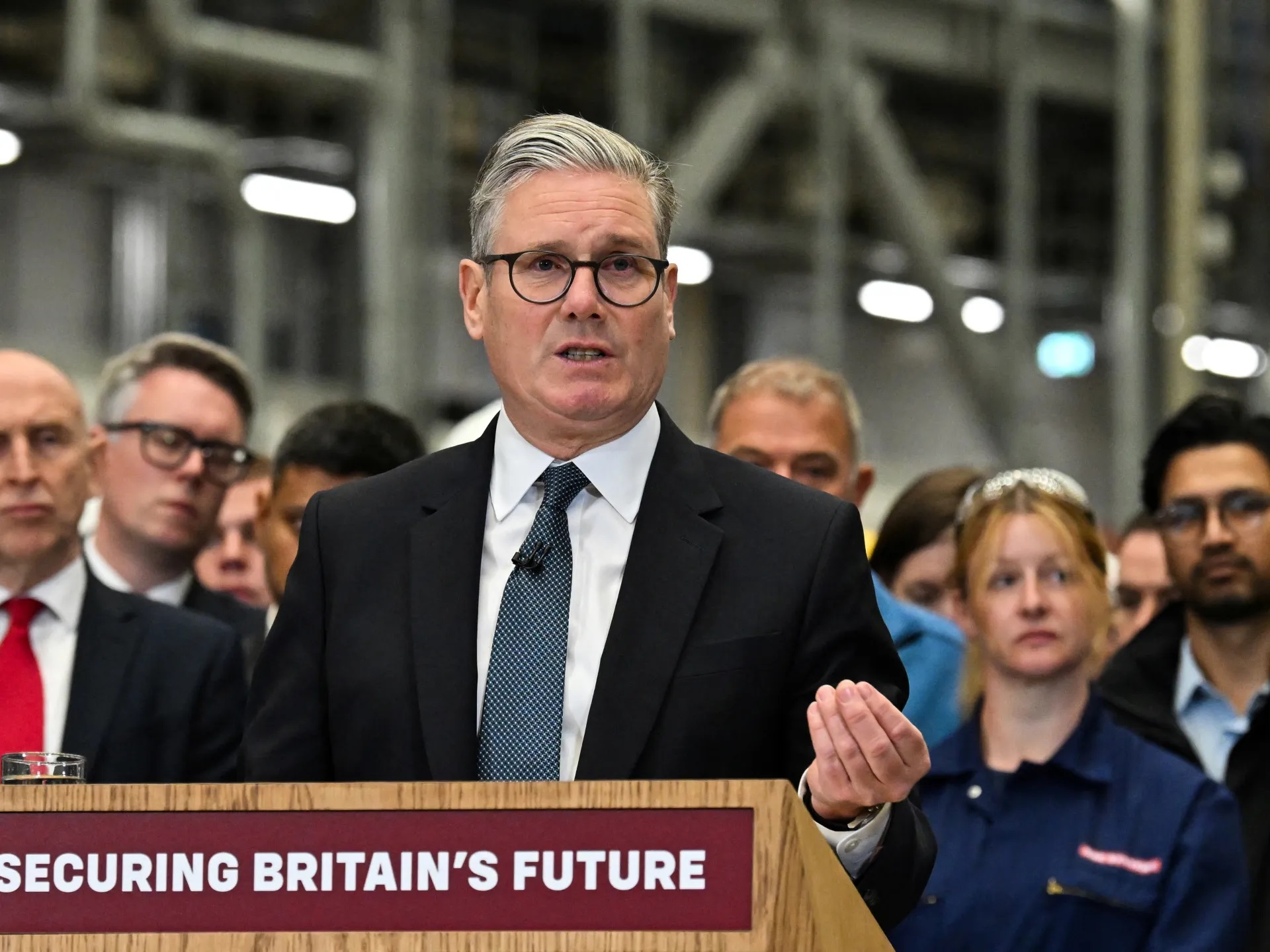Britain is expected to commit to a new NATO demand of increasing defence spending to 3.5% of GDP by 2035.
This move, according to the BBC report of Tuesday, June 3, 2025, is influenced by NATO Secretary General Mark Rutte’s efforts to align the alliance with U.S. expectations under Donald Trump.
Defence sources believe the UK will “without a doubt” support Rutte’s proposal at the upcoming NATO summit.
It reportedly comes as part of a broader strategy to keep the U.S. engaged in the alliance.
This new target would require Britain to boost its current defence budget by approximately £30 billion in real terms.
It goes beyond what the Labour government had previously planned.
Currently, the UK spends 2.33% of GDP on defence, with Prime Minister Keir Starmer having already committed to raising that to 2.5% by 2027, and to 3% at some point during the next parliamentary term.
However, at the launch of the strategic defence review earlier this week, Starmer declined to commit to a specific timeline for reaching the 3% target.
He cited a reluctance to engage in “performative fantasy politics.”
Despite this hesitation, comments made by Starmer during a visit to the BAE shipyard in Govan, Glasgow, suggested a softening of that stance.
In response to questions from journalists, he acknowledged ongoing discussions ahead of the NATO summit, where spending levels will be a key topic.
Starmer said the talks were part of a broader debate about shaping a NATO that remains effective in the future.
Rutte’s plan, involves raising hard defence spending to 3.5% of GDP, with an additional 1.5% dedicated to cyber, intelligence, and military infrastructure.
This plan is expected to be presented formally when NATO leaders meet in The Hague for Trump’s first summit of his second term,
Last week, Rutte publicly stated his belief that the summit would yield agreement on a total 5% target, with “considerably north” of 3% allocated to traditional defence spending.
Sources within the UK government said Starmer would discuss the proposal with senior advisers and defence officials.
They also disclosed that it was unlikely the UK would reject the higher target after having committed to a “NATO-first” defence strategy in its new review.
The review outlines a vision that prioritises NATO as the central pillar of Britain’s defence commitments.
There is some ambiguity around how the 3.5% target will be calculated, particularly whether spending on intelligence, currently counted by the UK Treasury as NATO-qualifying, will be excluded.
Such technical details are expected to be ironed out in last-minute negotiations leading up to the summit.
Funding the increase will be a significant challenge.
Defence spending on this scale would require either deep cuts to other public services or an increase in taxes.
On Monday, Starmer did not rule out additional reductions to the foreign aid budget.
Although this is only projected to account for 0.3% of GDP by 2027, far short of what would be needed to meet the defence spending hike.
The push for increased contributions is being driven largely by concerns over Trump’s past criticisms of NATO allies.
During his first term, Trump repeatedly accused member states of being “delinquent” in their financial commitments and even threatened to withdraw from the alliance during the 2018 NATO summit.
Trump has not issued such ultimatums since returning to office.
On the other hand, he has reiterated demands for allies to raise their defence spending significantly, reportedly suggesting a 5% GDP target shortly after his re-election.
Rutte’s proposal appears designed to appease Trump while maintaining alliance unity.
The suggested 1.5% of additional spending is broadly defined, allowing for the inclusion of infrastructure projects and other military-related investments.
This flexible interpretation is seen as key to securing Trump’s support without forcing dramatic increases from all members overnight.
Rutte has been praised by defence insiders for his diplomatic efforts and his growing rapport with Trump.
The former Dutch prime minister visited Trump at Mar-a-Lago shortly after the 2024 U.S. election and has since made multiple trips to the White House for formal talks.
His personal relationship with the U.S. president is viewed as instrumental in holding the alliance together during a politically sensitive period.
In summary, the UK is likely to adopt NATO’s higher defence spending target as part of efforts to keep Trump engaged with the alliance and maintain NATO unity.
However, meeting the 3.5% goal will pose significant fiscal and political challenges for the British government.







